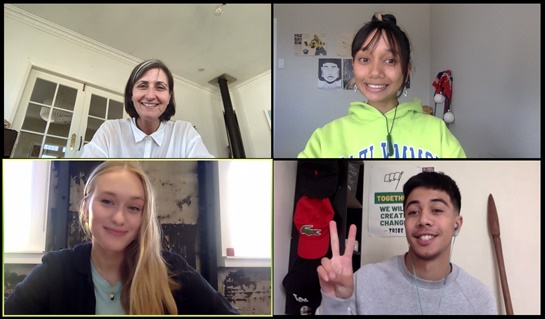Source: Department of Conservation
Workshop 2: Planning and Preparation
Kia ora, I’m Hannah and have been helping facilitate DOC’s Rangatahi mō Papatūānuku video competition. We’ve been running online workshops through the submission period so that you can drop by with any questions, and also learn some handy filmmaking tips and tricks.
Our second workshop ‘Planning and Preparation’ kicked off last week. We’ve had interest from DOC’s Facebook events of each online workshop all over Aotearoa. For more information regarding these workshops and the Zoom links to join check our our website.
If you missed out, no worries! From this workshop, we pulled out a short presentation on how to plan your video plus tips to keep in mind when to start making your 2-minute-factual video (keep reading down to see snippets from the workshop).
Planning
During the workshop, Jess and Ngato talked through planning a story with an easy structure to build a story ensuring it has a beginning, middle, and end. Ngato broke this down into 3 questions:
Beginning – What is it that I want people to know?
Middle – What can I show people for them to understand where I’m coming from?
End – What do I want people to take away from this?
Having trouble coming up with an idea? Here’s one way to overcome that
As prompted by Ngato, if you’re stuck for ideas, grab a piece of paper write down the 6 categories: Creative content; Te Reo Māori; Memory; Funny; Ambassador for protection of the rohe; and Rangatahi presenter choice, then mind map all the ideas you can come up with for each category. This helps to expand your ideas and to see what you’re thinking on paper.
What else can you do to add flavour to your video?
Jess, Storybox’s director, spoke about different elements you could use in your 2-minute factual video. Jess dove into how you could also use observation, animation, voice-over, personal archive, poetry and music within your video.
Interviewing: How to make your interviewee comfortable
Jess and Ngato described how best to make the person you are interviewing feel comfortable – especially when someone may have never been interviewed before. This is what Jess and Ngato had to say:
Research: What to keep in mind when collecting ‘factual information’
Research doesn’t always have to be statistics and facts but instead, can also be as simple as hearing someone’s experience – their story. This is called anecdotal experience. Though if you do want to add some facts and figures (for example, how pollution affects the environment every year) then make sure you fact check the information you are presenting.
Bringing your idea to life
To join our next workshop, ‘Bringing your Idea to Life’ follow this link and we’ll see you this Thursday the 25th as we’ll be going over ways you can record sound and use lighting techniques to help shoot your video. If you have any questions, please email us at rangatahivids@doc.govt.nz and we’ll be happy to help you out! In the meantime, check out these how-to videos presented by Sonny and Puawai on DOC’S YouTube channel to help you with your 2-minute factual video.
For any more information about the competition, check it out here: www.doc.govt.nz/rangatahivids
We’re looking forward to seeing your videos. Deadline is 15th March!



